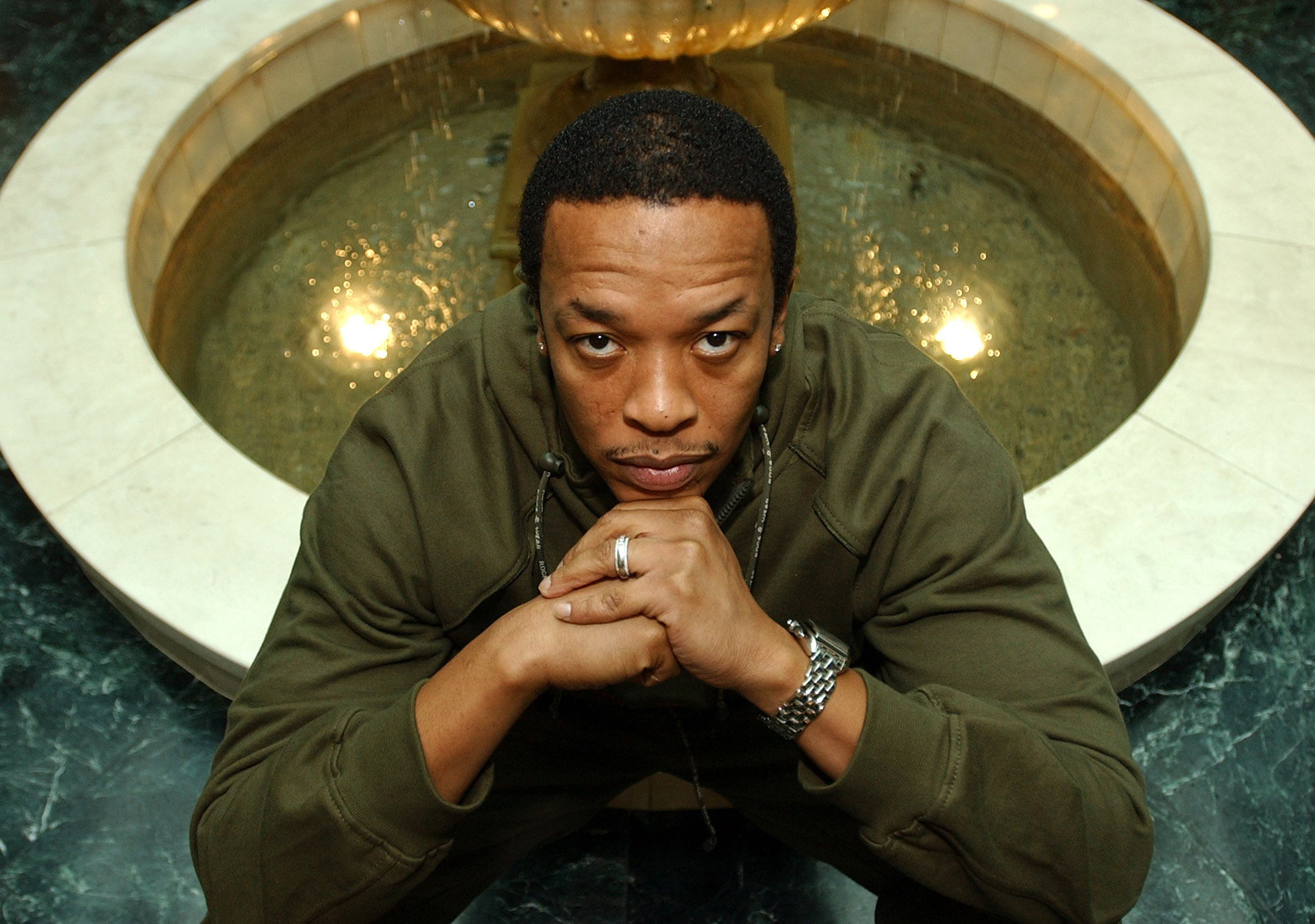
Sometimes the best thing to do with a project that’s been hanging over your head is to blow it up and start over. The California hip-hop architect Dr. Dre has a raft of achievements under his belt: The former N.W.A. member, innovator of the sinewy subgenre G-funk, and longtime nurturer of up-and-coming MCs is also currently heading up a label (Aftermath) and an electronics company (the Apple-owned headphone brand Beats). But the question of Detox, the follow-up to his 1999 album 2001, lurked every time he made a move—where was it? Was it doomed to live on in pop’s apocrypha for eternity?
Last week, while hosting his show on Apple Music’s radio station Beats 1—oh yeah, he does that too—he announced that the Detox era was dead. “I didn’t like it. It wasn’t good,” he said. “The record, it just wasn’t good… I worked my ass off on it, and I don’t think I did a good enough job.” Enter Compton, a brand-new album that would be out in mere days. The tracklisting promised an album stuffed with guests: up-and-coming artists like the Oxnard songwriter Anderson .Paak and the Detroit MC Jon Connor; fellow boldfaced names like Eminem and Snoop Dogg; R&B powerhouses Marsha Ambrosius and Jill Scott. Compton also has a substantial assist from the neighborhood’s latest hip-hop sensation: Kendrick Lamar, who’s achieved the dual feat of critical adoration and pop crossover thanks to his dense, mind-bending To Pimp A Butterfly and his verses on the chart-topping remix of Taylor Swift’s “Bad Blood”—a rare feat for any MC in 2015.
Compton opens with an intro that recalls a documentary, with a haughty voice intoning that “Compton was the American dream” and eventually recounting how its middle-class promise tipped into violence and crime, citing statistics and an eventually overpowering sense of dread. Dr. Dre, of course, achieved the American dream—fame, fortune, an executive suite in one of the world’s leading companies—by describing the curdling of that dream in exacting detail with his fellow firebrands in N.W.A. Who, it so happens, are being put into the record books with Straight Outta Compton, a biopic about the group that hits multiplexes Aug. 14.
Here’s How the Straight Outta Compton Actors Compare to Their Real-Life Counterparts
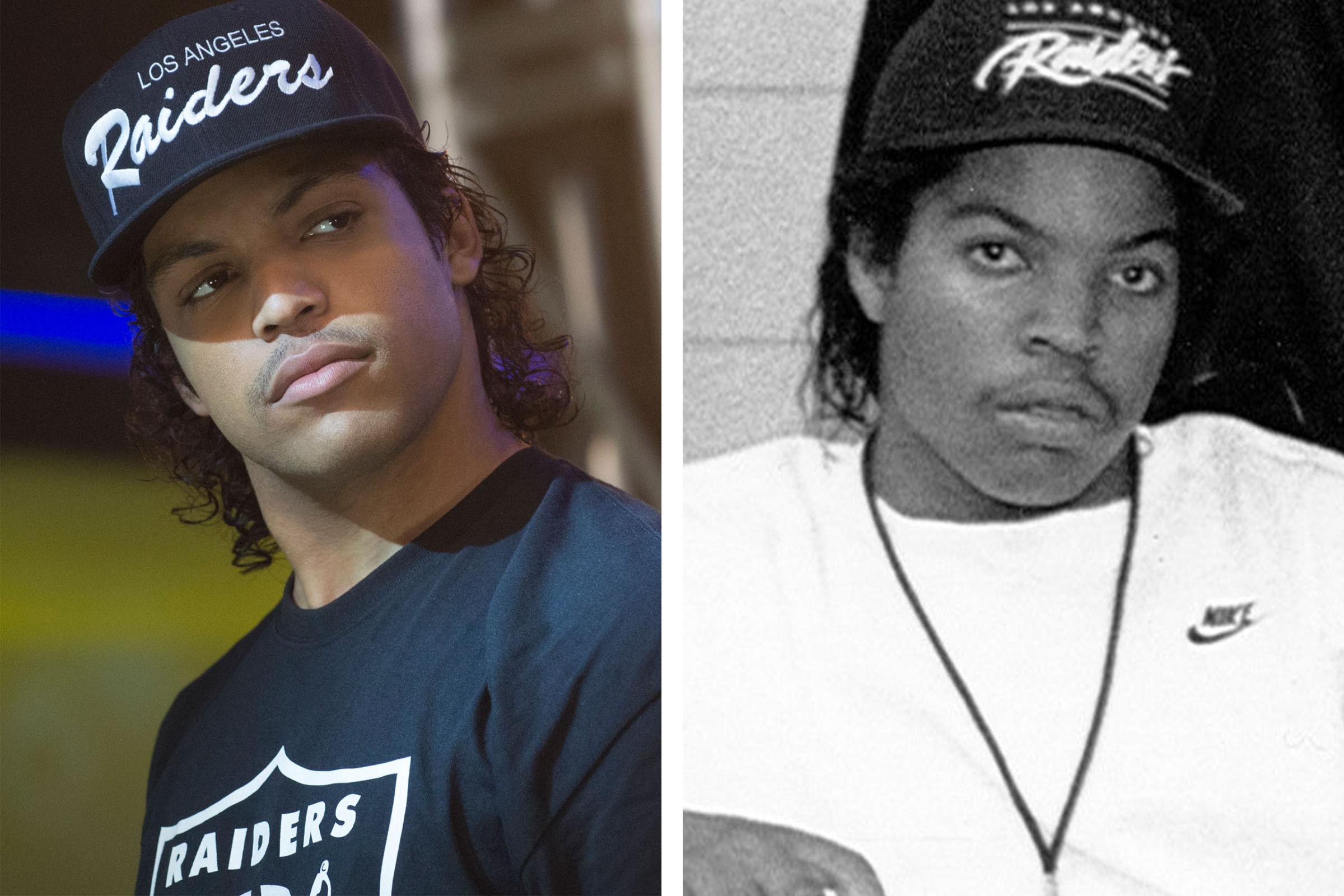
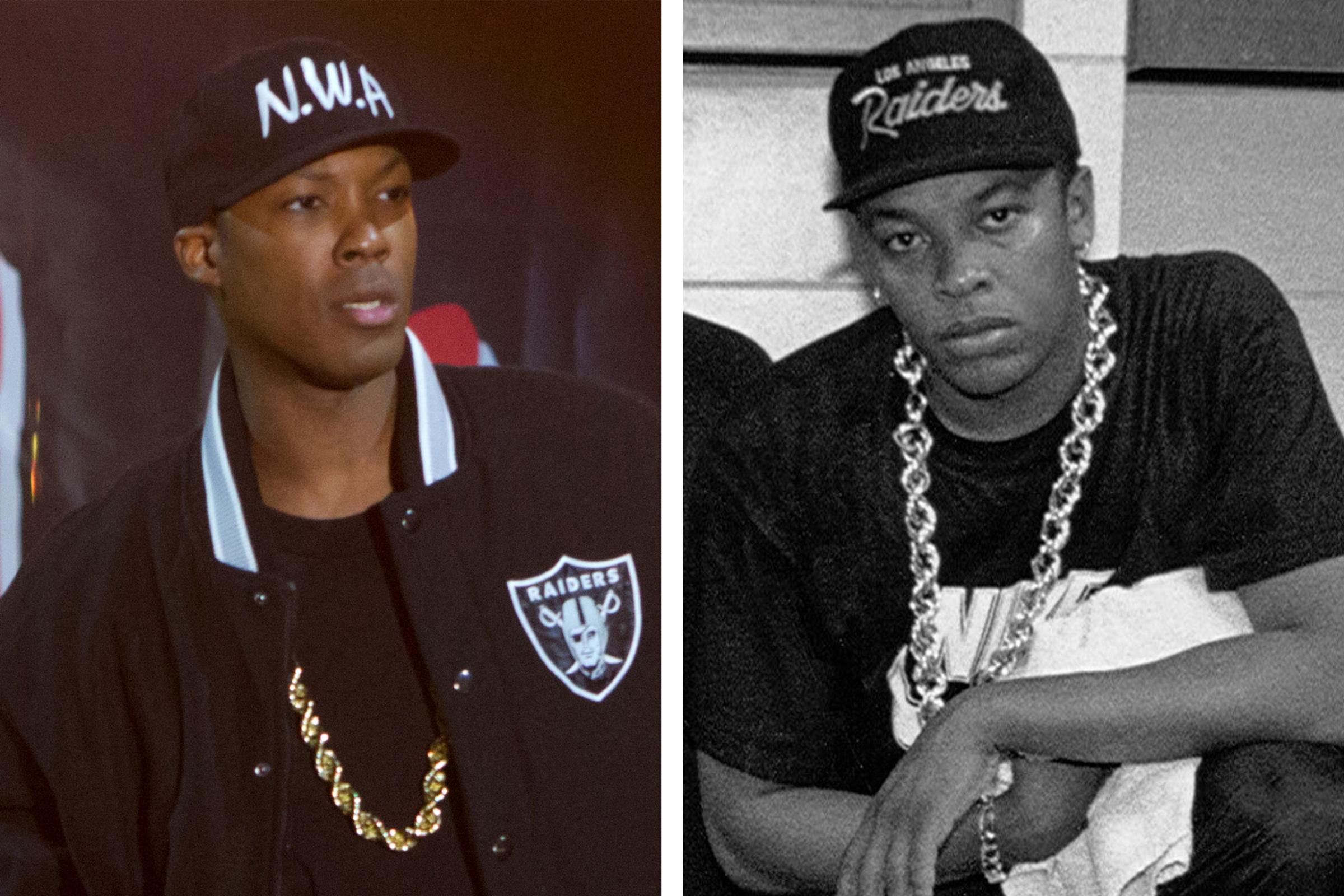
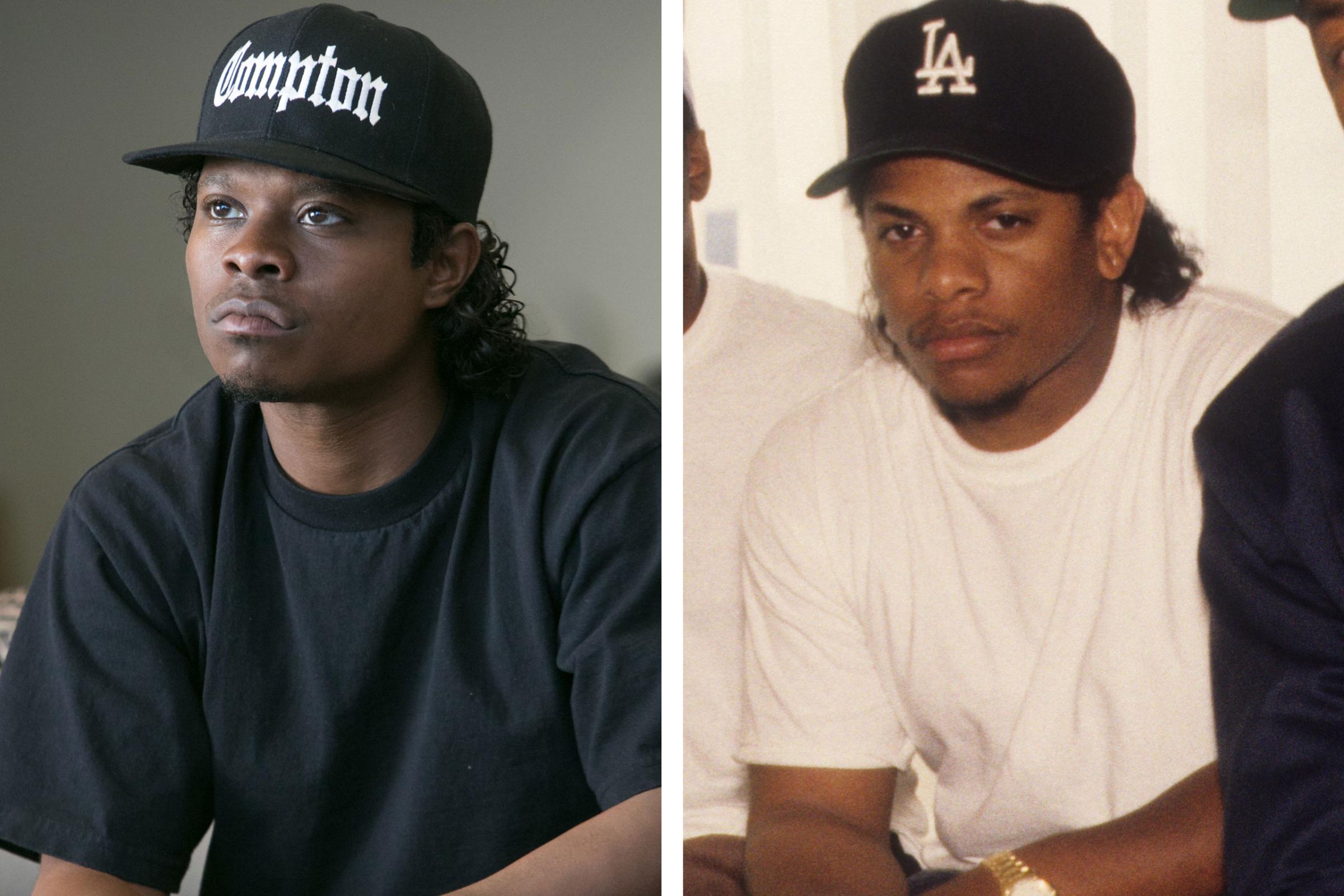
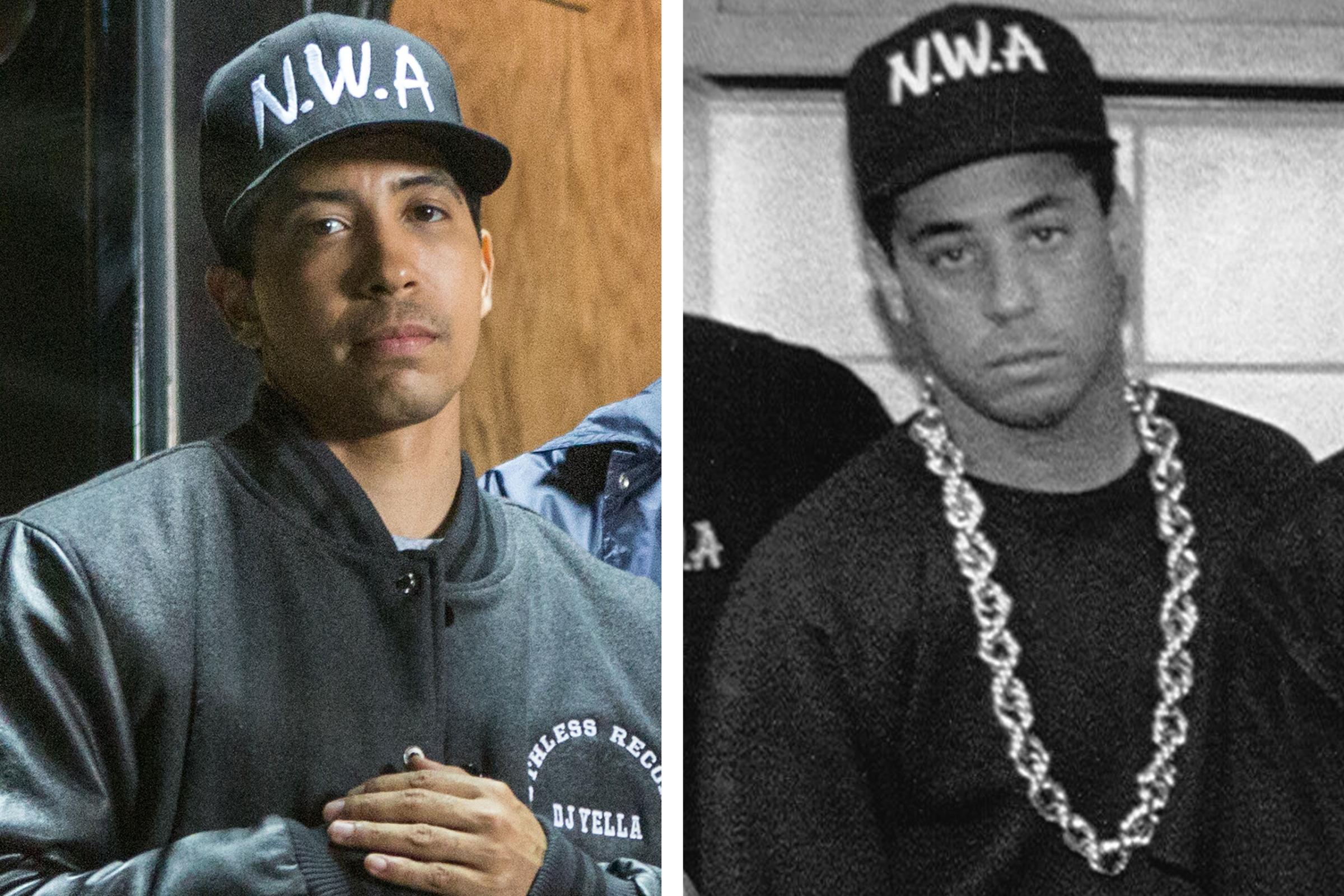
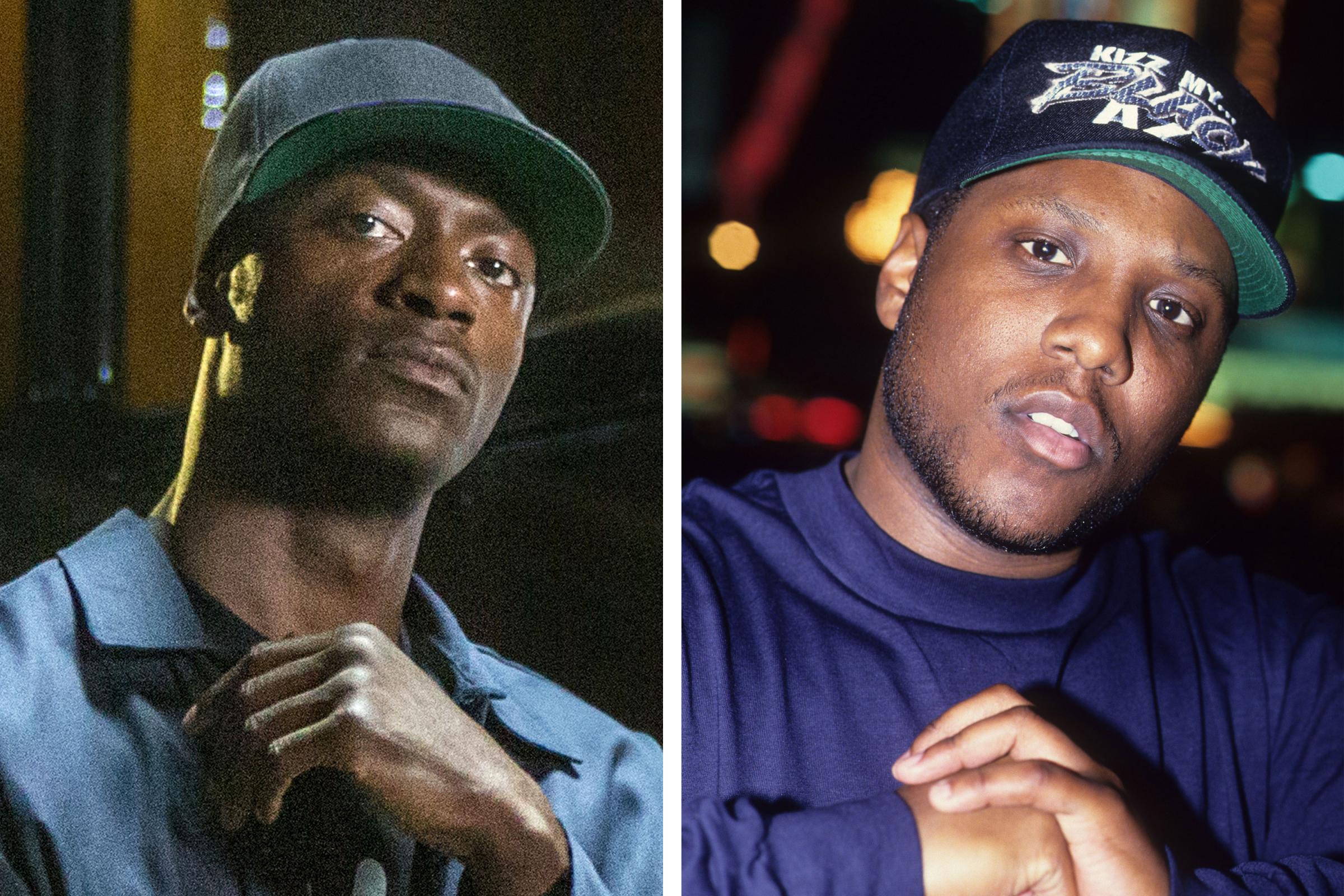
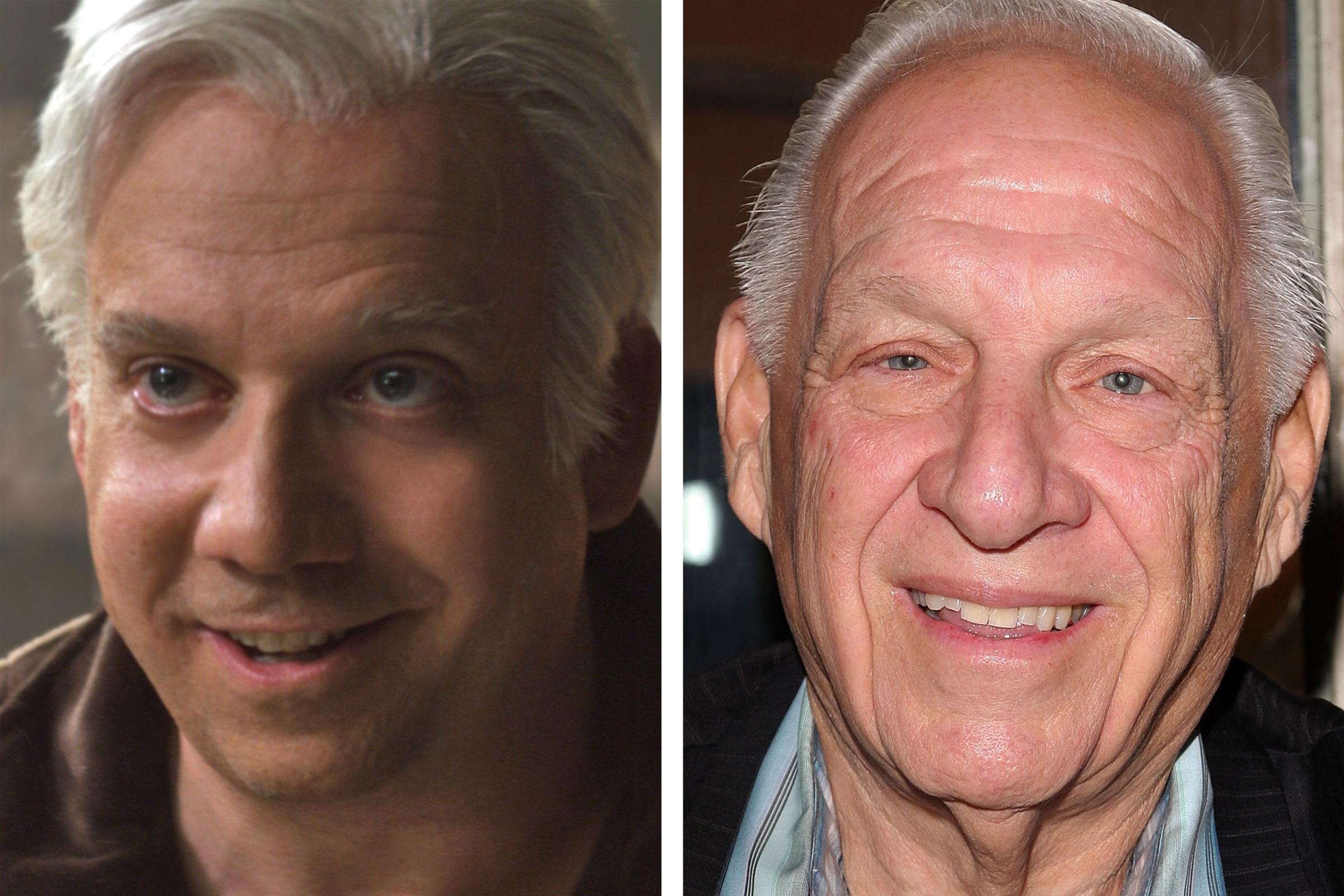
Dre’s sun-baked production, which defined ’90s hits like Snoop’s Doggy Dogg days hit “Gin & Juice” and 2Pac’s “California Love,” gets a 21st-century update on Compton; the sinewy beats sound thicker, gloomier almost. Lamar’s heavy presence invites comparisons to his own 2015 release, but Compton is very much rooted in Dre’s world. He takes the “master of ceremonies” roots of the acronym MC literally, serving as the host and facilitator for his party, and allowing throwbacks like Ice Cube’s growled shout-out to his 1993 southern California touchstone “It Was A Good Day” over the snaking “Issues” to dazzle the crowd. (Not every guest is welcome—in fact, the jarring violence that closes out the sprawling, increasingly manic “Loose Cannons” brings to mind the debates that ensued around pop music in the era immediately following the Parents Music Resource Coalition’s formation.)
Unsurprisingly given the backdrops of the movie’s release and the realities of the #BlackLivesMatter movement, Compton also has its explicitly political moments. “Deep Water” finds Anderson .Paak invoking the “I can’t breathe” exclamation uttered by Staten Island resident Eric Garner in his dying moments over a droning trumpet and seaside sounds that eventually descend into placidity. The gruff-voiced Los Angeles Dre protégé The Game raps about police killings and the indignities he’s suffered on the thickly layered “Just Another Day.”
But in the end, Compton is an album about Dre’s journey from being “a product of the system, raised on government aid” in his younger days to executive status in 2015, right down to it being billed as his final studio effort. “It’s All On Me” finds him reminiscing about his initial encounters with Snoop and Suge Knight over a flinty guitar sample; and the closer “Talking To My Diary” has him laying out his life and his passions, giving copious props to his former bandmates (including the once-scorned Eazy-E) and talking about making his mother’s life better. “Don’t be surprised that I built an empire,” he thunders, and the possibility of Compton being his final statement on record underlines that statement in red pen.
More Must-Reads from TIME
- How Donald Trump Won
- The Best Inventions of 2024
- Why Sleep Is the Key to Living Longer
- Robert Zemeckis Just Wants to Move You
- How to Break 8 Toxic Communication Habits
- Nicola Coughlan Bet on Herself—And Won
- Why Vinegar Is So Good for You
- Meet TIME's Newest Class of Next Generation Leaders
Contact us at letters@time.com